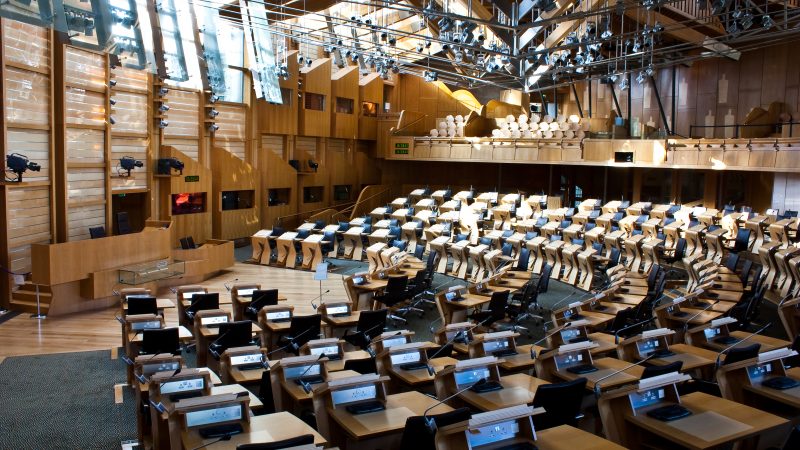
The Scottish government’s spending review yesterday may not have made waves beyond Holyrood, but it is probably one of the most consequential financial statements that we’ve seen in the Scottish parliament for years. For audiences outside Scotland, it is important to understand what the SNP did yesterday and just how important it will be for Scottish politics over the next few years.
The Scottish government hasn’t set out a multi-year spending plan in a decade. Holyrood has moved from budget to budget with little guide to the direction of travel. It is also the first time that spending plans have been set out with Holyrood in control of a significant portion of its own revenue. Taxation powers have now been in place for enough years to mean that the government can benefit (or not) from their own decisions.
For a number of years (and perhaps most vocally at the last Holyrood elections), the Institute for Fiscal Studies has been warning that the government’s ambitious spending plans were not matched with plans to pay for them. Yesterday was the first sign that the financial reality is beginning to hit home.
The Finance Secretary presented the choices the SNP government made as being ‘canny’ with taxpayers’ money. But that couldn’t be further from the truth. A series of poor spending decisions and policy announcements that lacked long-term funding now mean a black hole worth several billion pounds in the Scottish government’s budget. Let’s not forget that this is a government that has wasted hundreds of millions of pounds over the past five years.
The SNP’s answer to this? Cuts in areas they don’t consider a priority and paltry increases in those they do. Local government and justice budgets will see real-terms cuts at a time when council services, the courts and policing are under severe pressure. Health budgets will increase in cash terms, but in real terms they will virtually stand still – at a time when the government is pushing ahead with the biggest reforms to social care in generations. And while cash for Scotland’s national heritage organisation is being slashed in the culture budget, money is being found to beef up spending on an independence referendum in 2023.
The consequences of these choices aren’t going to be felt at the margins – they’re going to mean cuts to services that people rely on. Just take the local government budget as an example. For years, the combination of the SNP’s unfunded council tax freeze and disproportionate budget cuts has meant that local government has been forced to cut back. Most councils are now running on tight budgets with no fat to trim. A standstill budget – as proposed yesterday – is going to mean more pressure on services and less cash for much needed pay increases this year.
In health, where one in eight people are now on an NHS waiting list, an injection of cash is needed to reduce waiting times and to get the health service back on track. But what we got was the budget largely standing still in real terms. This isn’t what’s required in the NHS and certainly not when the government also want to bring about a generational shift in social care.
The truth is that the Scottish government is now at a point when they have no choice but to admit the difficulty coming down the track. While Covid funding shielded them from tough choices, that is now at an end. They are having to face the consequences of being a government without a real economic plan. With the tax powers Holyrood now has, Scotland would benefit from anything the Scottish government did to grow the economy and increase the tax base. But that’s precisely where it has failed – never truly recovering from the 2008 banking crisis and then entering Covid with a weak economy.
The SNP has been in power for 15 years. By the time the party stands for election again, it will be almost 20. Scotland can’t afford a quarter of a century of SNP government. If we want to protect our schools, hospitals and vital local services we have a duty to do everything to remove them from office four years from now.




More from LabourList
‘The hope that kills you’: Reflections from the final day in Gorton and Denton
MPs, union leaders and organisations react to ‘bruising’ Gorton and Denton result
A gory night for Labour